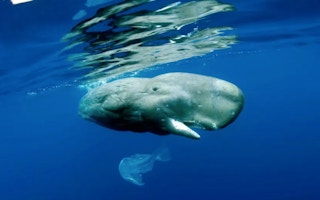In the Blue Economy, governments and the private sector see enormous potential for marine industries old and new – from fishing to sea-bed mining, energy extraction to bio-prospecting. The ocean economy, conservatively valued at over US$2.5 trillion each year, is predicted to double in size by 2030.
While Blue economy evangelists claim that technology and innovation will ensure that this growth will be sustainable, we would urge caution. Although there is clear potential for the Blue Economy to provide jobs and growth, especially for developing countries, we must also acknowledge the deeply precarious state the ocean is in, and ensure that plans to expand the Blue Economy are truly sustainable.
Indeed, we would go further: unless ocean conservation moves rapidly up the international agenda, resulting in corresponding action and investment, the science is clear: the current level of economic exploitation is unsustainable.
These themes will be front and centre of this week’s Our Oceans conference in Oslo. This annual gathering has become an important forum for building political will on ocean conservation which must urgently translate into action if we are to avert ecological, social and economic disaster for our seas and those who depend upon them.
The recent Intergovernmental Panel on Climate Change report on the oceans and cryosphere vividly explained the threat posed by temperature rise and acidification. Over the last three decades, the world has lost half its coral reefs. Warming oceans will also change the distribution of fish stocks and drive many species to extinction.
Climate change is exacerbating the pressures from existing over-exploitation. The Food and Agriculture Organization estimates that more than 30 per cent of global fisheries are being exploited at unsustainable levels, and another 60 per cent are at maximum capacity,
Meanwhile, marine plastic pollution has reached crisis levels, with an estimated eight million tonnes of plastic waste entering the oceans every year – a figure projected to increase four-fold by 2050.
So, what is to be done? First, we need to recognise the urgency of the threat. We need concrete, measurable action to protect the world’s oceans and the communities who depend on them.
Discussions around increasing the size of the Blue Economy must be grounded in the scientific reality of what damage has been done and what the oceans can sustain. WWF has worked to define a sustainable and equitable Blue Economy, and, with partners, we have set out principles to guide finance and investment in ocean-based industries to ensure future investments in the Blue Economy will support its sustainability.
WWF is working with its partners to realise our vision that, by 2030, there is no plastic leakage into the natural environment. At this year’s conference, we’ll be committing to advance the development of a global treaty to curb marine plastic pollution.
On sustainable fisheries, we are working with partners to arrest overexploitation, improve their governance and management, and conserve critical habitats, especially those crucial for maintaining recruitment and rebuilding populations.
We are working with governments, business and communities to build networks of representative and well-managed areas of marine protection that will help protect biodiversity, support resilience and sustain many of the goods and services that the ocean provides.
Technology and innovation have an important role to play i but we must also recognise that increasing the resilience of existing natural resources and local communities can help protect vulnerable ecosystems and more effectively deliver the sound and equitable use of coastal resources.
Crucially, sustainable management is essential to safeguarding the well-being and prosperity of future generations. Without urgent action, we risk undermining the natural resources we depend upon for survival. WWF has identified protection of 30 per cent of our oceans and coastal seas, alongside a halving of the ecological footprint of economic production and consumption, as essential to restoring nature by 2030.
In what will be a critical year for the planet, 2020 brings a momentous opportunity to secure a New Deal for Nature and People, with agreement on a new global biodiversity framework, redoubled action on climate change, a treaty for the oceans and a renewed commitment to the environment under the Sustainable Development Goals all to be negotiated.
If backed by political will, engaged local communities, mobilised civil society and a responsible private sector – the coming year provides an unmissable chance to turn the tide on the unsustainable exploitation of our oceans, and to begin to bring them back to health.
John Tanzer is WWF International’s Oceans Practice Leader.


















